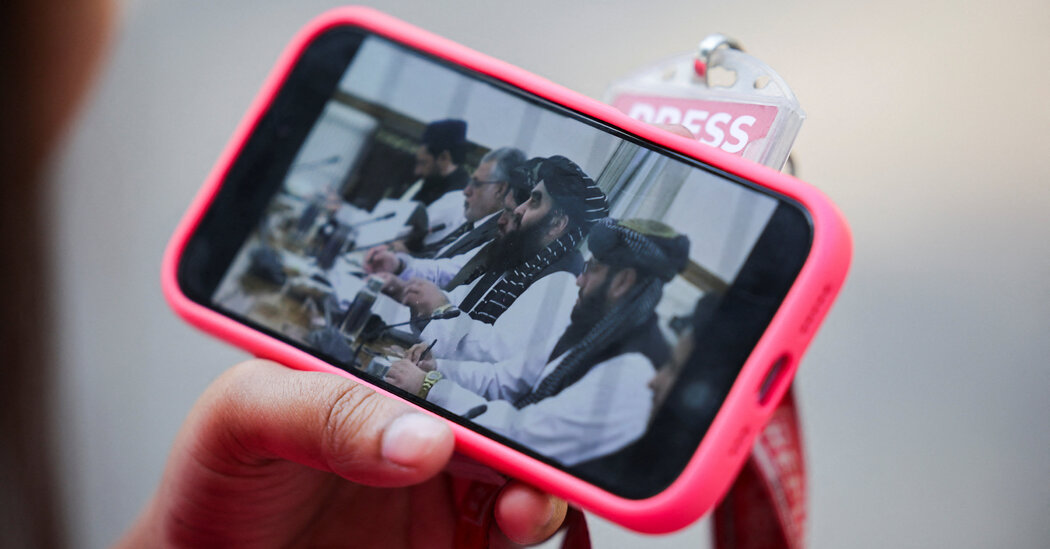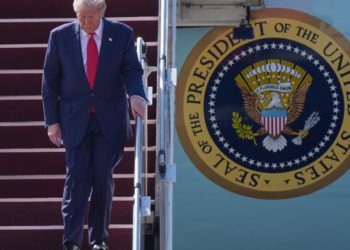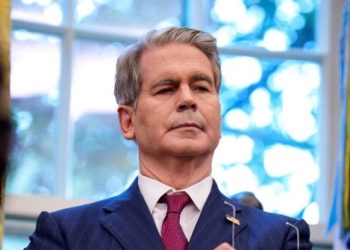India and the Taliban government in Afghanistan announced expanded diplomatic ties on Friday, after the sides held their most high-powered talks in the four years since Taliban forces overran the U.S.-backed republic in Kabul, which New Delhi had supported.
India said it will re-establish its embassy in Kabul, but while the move elevates diplomatic relations with India to their highest level in decades, it appeared to fall short of a formal recognition of the Taliban government.
In a sign of escalating geopolitical tensions and intrigue, the announcement came on a day the Taliban’s defense ministry accused India’s archnemesis Pakistan, which had provided the group support during its insurgency against the U.S. force, of carrying out airstrikes in the Afghan territory along the border as well as “breaching the skies” of Kabul.
Observers saw in the Taliban defense ministry’s careful language a confirmation of reports that Pakistani airstrikes had been behind the explosions reported in central Kabul late on Thursday. On social media, there were suggestions, including by former Afghan President Hamid Karzai and a former senior American official, that the explosions were the result of airstrikes by Pakistan’s military.
Pakistan’s government has waged a nearly two-decade fight against militants of the banned group Tehreek-e-Taliban Pakistan, also known as the T.T.P. or Pakistani Taliban. Pakistan has said that the group is planning renewed attacks from sanctuaries across the border in Afghanistan with assistance from India’s intelligence service. Afghan officials have denied the charge.
Pakistan’s government has been under pressure after two recent deadly attacks in the country, the latest killing a dozen soldiers this week. In a statement on Friday, Pakistan’s military said it had conducted “a series of retribution operations” but did not say where. But Lt. Gen. Ahmed Sharif Chaudhry, a spokesman for the Pakistani military who was addressing a news conference, declined to say whether that included the strike in Kabul.
The meeting in New Delhi between Amir Khan Muttaqi, Taliban’s foreign minister, and his Indian counterpart, S. Jaishankar, is the highest level engagement between the two sides in decades.
As they sat down for talks, Mr. Jaishankar said India was elevating its mission in Kabul to the level of an embassy. India’s embassy in Kabul had been shut in the 1990s, but has been open during the past four years, albeit at a reduced capacity.
The Indian foreign minister also said India was expanding its development aid to Afghanistan and would increase the number of visas issued to Afghans, which it had only recently resumed issuing, in small numbers. As part of the aid expansion, Mr. Jaishankar listed India’s plans to build shelters for refugees forcibly returned to Afghanistan from Pakistan and Iran.
Mr. Muttaqi, in his statement, emphasized the deep ties between India and Afghanistan and said he hoped his visit and the agreement will increase trust and economic engagement between the two countries. He has invited Indian investment in Afghanistan, including in the country’s mining sector.
“We will not allow any group to threaten others from the Afghan soil, or to use Afghan soil against others,” Mr. Muttaqi said.
Neither of the leaders addressed the Taliban government’s record on human rights, particularly the regime’s ban on girls’ education beyond 6th grade.
Escalating tensions in the region, which are testing loyalties and redrawing relationships, hung heavily over the meeting.
India and Pakistan, the nuclear-armed neighbors, fought a short military conflict earlier this year. Pakistan’s relations with the Taliban, a group it had long nurtured with safe havens during its two-decade insurgency in Afghanistan, have also plummeted in the years the insurgents retook power in Kabul. There have been violent clashes between the countries — a deterioration that analysts say New Delhi is working to exploit.
Pakistan has previously conducted airstrikes in areas along the border with Afghanistan, including when the U.S.-backed republic was in power, the Taliban government said. In one of these bombings, of a local bazaar in Barmal district of Paktika province late on Thursday, there were no fatalities, but several shops were partially destroyed, according to Mohammad Amin Huzaifa, the province’s director of information and culture.
If Pakistan did strike Kabul, it would be a major escalation — and the timing would be likely to send a message to the Taliban leadership that a closer relationship with India would not be tolerated.
In a press engagement with a handful of Indian reporters later in the day, Mr. Muttaqi said reports of what had caused the explosion in Kabul were still being assessed, but he confirmed the airstrikes along the border in Paktika.
“This is a big mistake of the Pakistan government,” Mr. Muttaqi said. “You can’t solve issues like this, and Afghanistan’s history shows that.”
He said anyone who tries to use force against Afghanistan should ask “the British, the Soviets, the Americans, and NATO” how that ended.
“We want good relations with Pakistan, just like we want with India,” he said. “But it has to be reciprocal, it can’t be one-sided.”
India has warmed toward the Taliban government in recent years. But during the movement’s rule in Afghanistan during the 1990s and its two-decade insurgency against the Afghan government and its American backers, relations were much cooler. That was in part because of two incidents that remain politically sensitive for Indians: India accused the Taliban of sheltering hijackers who seized an Indian plane in 1999 and landed it in southern Afghanistan, and of conducting a terrorist attack against India’s diplomatic mission in Kabul in 2008 that killed dozens, including four Indian officials.
There was no direct acknowledgment of these two episodes in the public statements by the Indian and Afghan foreign ministers on Friday.
“During the 20-year struggle against the U.S. occupation, there were many ups and downs,” Mr. Muttaqi said. “But not once did we give a statement against India. Instead, we always sought good relations with India.”
Salman Masood, Elian Peltier, and Safiullah Padshah contributed reporting.
Mujib Mashal is the South Asia bureau chief for The Times, helping to lead coverage of India and the diverse region around it, including Bangladesh, Sri Lanka, Nepal and Bhutan.
The post Taliban Expands Ties with India, While Accusing Pakistan of Bombing Afghanistan appeared first on New York Times.




